Algeria, officially known as the People’s Democratic Republic of Algeria, is located in North Africa. With its diverse landscapes, vibrant culture, and historical significance, Algeria offers a captivating experience for locals and visitors. This article delves into the rich tapestry of Algeria, providing an in-depth perspective based on authentic sources.
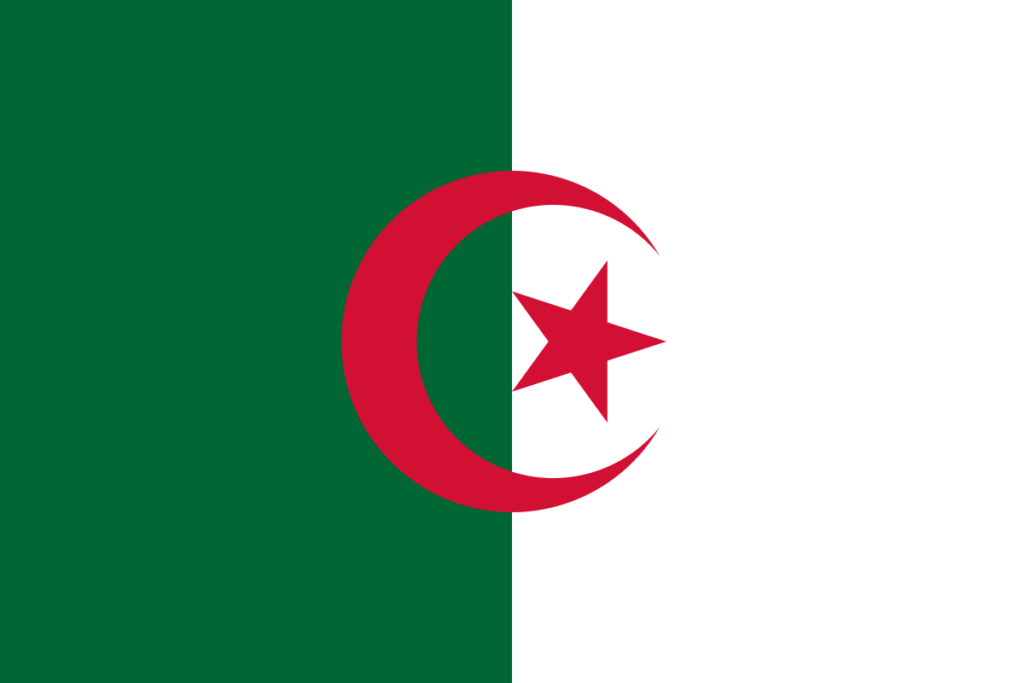
Geography and Natural Beauty
Algeria is the largest country in Africa and the tenth-largest in the world, covering an area of approximately 2.38 million square kilometers. Several countries border it, including Tunisia, Libya, Niger, Mali, Mauritania, Western Sahara, Morocco, and the Mediterranean Sea.
The country boasts a varied geography, encompassing the majestic Atlas Mountains, vast deserts like the Sahara, and a picturesque coastline stretching over 1,600 kilometers. The Atlas Mountains offer breathtaking views and opportunities for hiking, while the Sahara Desert is a testament to the awe-inspiring beauty of nature.
Algeria, located in North Africa, is renowned for its diverse geography and natural beauty. Its vast territory spans the Mediterranean coastline north to the expansive Sahara Desert south, offering a stunning array of landscapes.
- Coastal Beauty: The northern part of Algeria is graced by a picturesque Mediterranean coastline stretching over 1,000 kilometers. The azure waters of the Mediterranean Sea meet golden sandy beaches dotted with charming coastal towns and cities like Algiers, Oran, and Annaba. This region’s pleasant climate, rugged cliffs, and inviting coves make it a popular destination for locals and tourists.
- Majestic Mountains: The northern coastal area is also characterized by the Atlas Mountains, which run parallel to the coast. These mountains include the Tell Atlas and the Saharan Atlas. The Tell Atlas is adorned with lush green valleys, picturesque gorges, and mountainous plateaus. Jebel Chelia, the highest peak in the Tell Atlas, provides breathtaking panoramic views.
- Saharan Splendor: As we move southwards, the landscape changes dramatically, giving way to the vastness of the Sahara Desert. The Algerian Sahara is a mesmerizing expanse of dunes, rocky plateaus, and oases. The Grand Erg Oriental and the Tassili n’Ajjer National Park are notable attractions in this region, offering an otherworldly experience with their unique rock formations and prehistoric rock art.
- Oases and Palm Groves: Throughout the Sahara, numerous oases and palm groves punctuate the arid landscape. These green havens provide a stark contrast to the surrounding desert and have been essential for the survival of local communities for centuries.
- Awe-inspiring Canyons: In the Ahaggar Mountains, located in the southern part of the country, the deep and rugged canyons like the Gorges of El Ghoufi and Gorges of Djanet add to the country’s natural wonders.
- Diverse Flora and Fauna: Despite the arid conditions of the Sahara, Algeria is home to various desert-adapted flora and fauna. The Tassili n’Ajjer National Park, in particular, is renowned for its unique biodiversity and rock art, which provides valuable insights into ancient civilizations.
Algeria’s geographical diversity and natural beauty offer travelers and explorers various experiences. Whether it’s basking on the Mediterranean beaches, trekking through the Atlas Mountains, or marveling at the grandeur of the Sahara Desert, Algeria’s landscapes leave a lasting impression on those who venture to discover its hidden treasures.
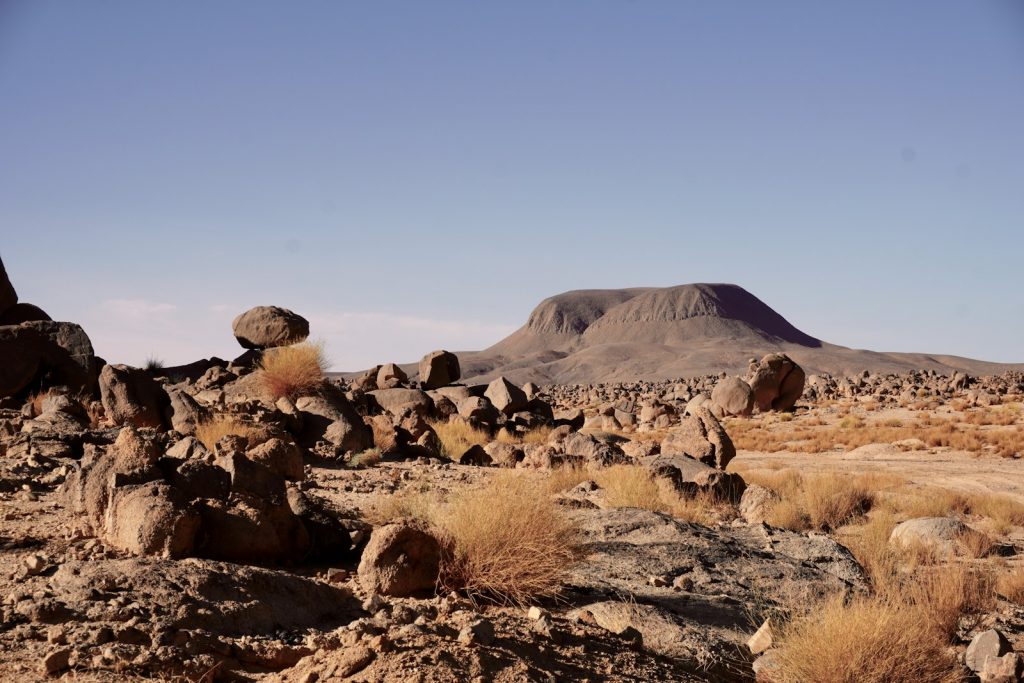
History and Cultural Heritage
Algeria, located in North Africa, has a rich and diverse history that spans millennia, shaped by various civilizations, conquests, and cultural exchanges. Its cultural heritage is a mosaic of influences from Berbers, Phoenicians, Romans, Arabs, Ottomans, and French colonialists.
The region’s earliest known inhabitants were the indigenous Berber people, who significantly impacted Algeria’s culture and identity. The Berbers’ languages, customs, and traditions still endure in various regions today.
In antiquity, the Phoenicians established trading posts along the Algerian coast, followed by the Romans, who conquered the area and integrated it into their vast empire. Roman ruins such as Timgad and Djémila bear witness to this period and are now UNESCO World Heritage Sites.
In the 7th century, Arab Muslim armies invaded Algeria and introduced Islam, the dominant religion and a vital part of Algeria’s cultural fabric. Islamic architecture, art, and literature flourished, and many impressive mosques, palaces, and manuscripts were created during this time.
Algeria was part of the larger Arab-Islamic world, contributing significantly to the region’s cultural and intellectual achievements. Scholars from Algeria made notable contributions to fields like mathematics, astronomy, and philosophy.
In later centuries, the Ottoman Empire influenced the region, leaving behind an architectural legacy seen in the casbahs (fortified cities) and other structures. The Ottoman rule also had an impact on the Algerian language and cuisine.
In the 19th century, Algeria fell under French colonial rule, significantly changing its culture and society. The French colonization profoundly impacted the urban landscape, administration, and education system. The struggle for independence from France was long and arduous, with Algeria finally gaining independence in 1962.
Algeria’s diverse cultural heritage is celebrated through its music, dance, festivals, and traditional crafts. Traditional Berber music, Rai, and Chaabi are popular music genres in the country. At the same time, cultural festivals like the Algerian National Day, Eid al-Fitr, and Yennayer (Berber New Year) are widely observed.
The country’s cuisine combines various influences, combining Berber, Arab, Ottoman, and French culinary traditions. Dishes like couscous, tajine, and assorted flavorful pastries are staples of Algerian cuisine.
Algeria’s cultural heritage also includes traditional crafts such as carpet weaving, pottery, and jewelry-making, which showcase the country’s artistic prowess.
Despite facing challenges and changes over the centuries, Algeria’s cultural heritage remains resilient, reflecting its rich history and diverse influences. Preserving and promoting this heritage is essential for maintaining the unique identity and pride of the Algerian people.
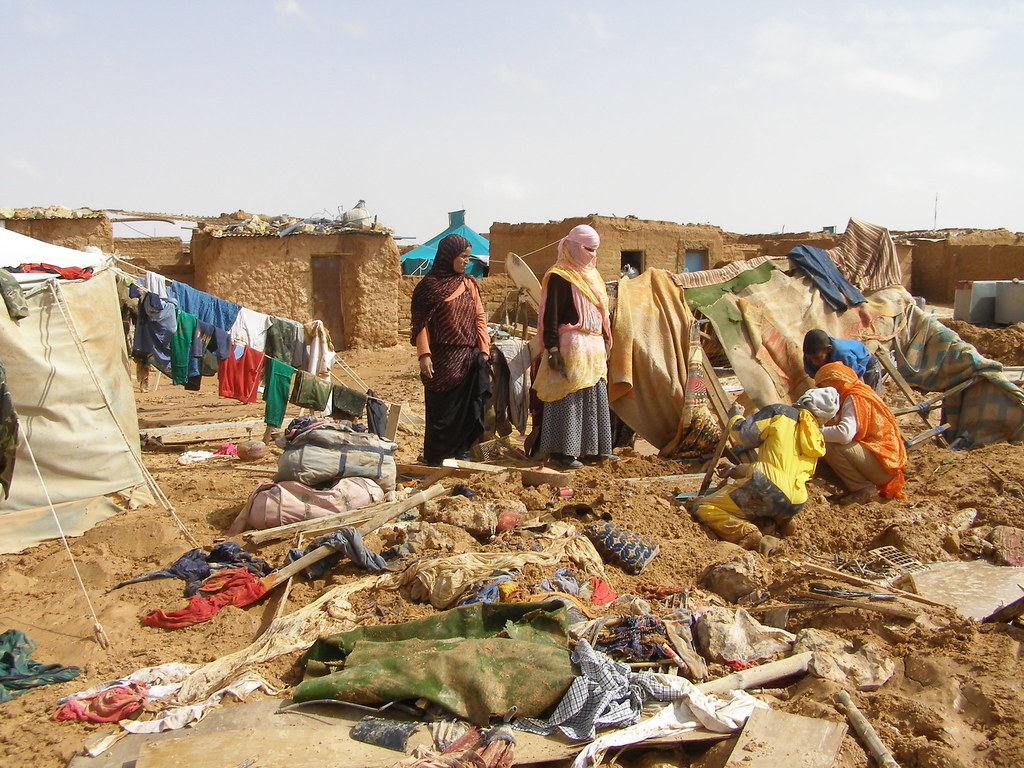
Culture and Traditions
Algeria, a North African country with a rich history, has a diverse and vibrant culture shaped by its ancient Berber roots, Arab influences, and French colonial heritage. The cultural traditions of Algeria are deeply intertwined with its history, religion, and geographical diversity. Here are some critical aspects of Algerian culture and traditions:
1. Berber Heritage: Algeria’s indigenous Berber population has significantly impacted the country’s culture. Traditional Berber customs, languages, and art forms have been preserved in various regions. The Kabyle and Chaoui communities, in particular, have retained many of their unique traditions and practices.
2. Islamic Influence: Islam plays a crucial role in Algerian culture, and most of the population practices Sunni Islam. Islamic traditions are evident in everyday life, from religious festivals to prayers and observances during Ramadan.
3. Language: Arabic is the official language of Algeria, used in government, education, and media. However, the country’s Berber population speaks different Amazigh languages, such as Kabyle, Chaoui, and Tamazight. Due to Algeria’s colonial history, French is widely spoken and used in business and administration.
4. Cuisine: Algerian cuisine is diverse and influenced by a blend of Mediterranean, Berber, and Arab culinary traditions. Staple foods include couscous, various types of bread (like khobz and msemen), and tagine dishes. Algerian cuisine is known for using aromatic spices and herbs, creating flavorful and hearty meals.
5. Traditional Clothing: Traditional Algerian dress varies across regions and occasions. The traditional male attire includes the djellaba, a loose-fitting robe, and the burnous, a hooded cloak. Women often wear colorful dresses and headscarves, like the haik or melhfa. However, Western-style clothing is prevalent in urban areas.
6. Music and Dance: Algeria has a diverse musical heritage, with various regional music styles, such as Raï, Chaabi, and Kabyle. Traditional dance forms like the Ahellil and Kabyle dances are still performed during cultural celebrations.
7. Festivals and Celebrations: Religious festivals, like Eid al-Fitr and Eid al-Adha, are widely celebrated in Algeria, bringing families together for feasts and prayers. Other vital celebrations include Independence Day (July 5) and Revolution Day (November 1), commemorating Algeria’s struggle for independence from France.
8. Hospitality: Algerian culture places great importance on hospitality. It is customary for Algerians to welcome guests warmly and offer tea or coffee as a gesture of hospitality.
9. Arts and Crafts: Algeria has a rich artistic tradition, with crafts like pottery, weaving, and metalwork passed down through generations. These crafts often feature intricate geometric patterns and vibrant colors.
Overall, Algeria’s culture and traditions reflect a unique blend of ancient customs and contemporary influences, making it a country with a fascinating and diverse cultural tapestry.
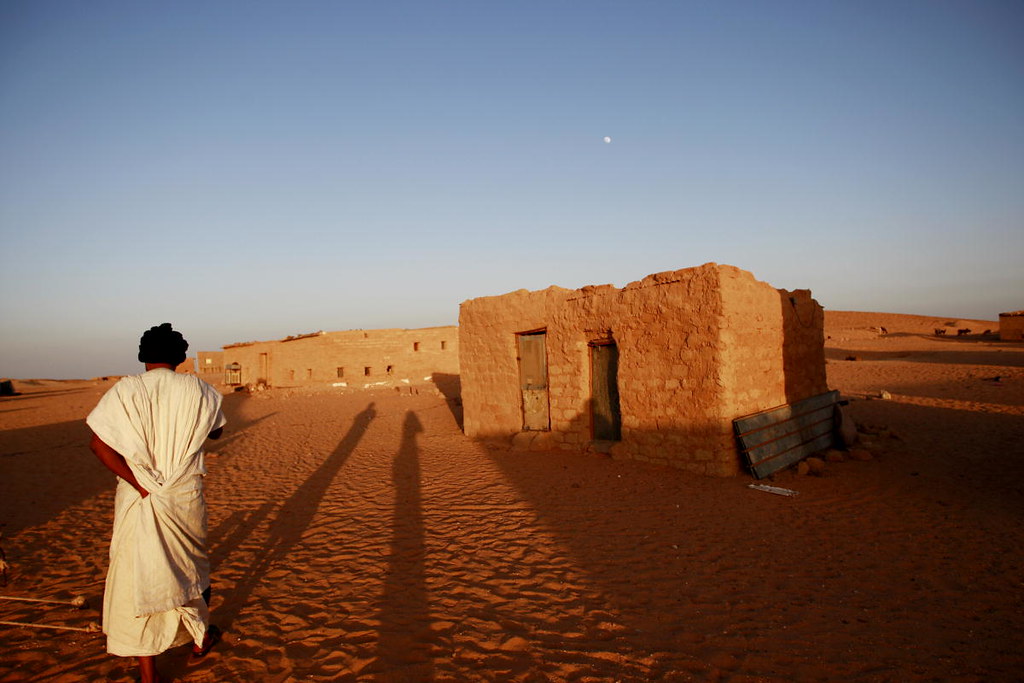
Economy and Development
Algeria possesses significant natural resources, including oil, natural gas, and minerals. It is one of Africa’s leading energy producers and has been investing in infrastructure development, education, and healthcare. The country has made progress in diversifying its economy and promoting tourism, agriculture, and manufacturing sectors.
Algeria is an African country with significant economic potential and a focus on industrial and energy development. Here’s a summary of the economy and development of Algeria:
- Economic Overview: Algeria boasts one of the largest economies in Africa and the Middle East. It is rich in natural resources, particularly hydrocarbons, as it possesses the 10th largest natural gas reserves and the 16th largest crude oil reserves globally. These resources have historically been the main drivers of the country’s economy.
- Energy Sector: The energy sector, particularly oil, and gas, plays a crucial role in Algeria’s economy. The country is a significant exporter of natural gas, supplying Europe and other regions. Revenue from the energy sector has been instrumental in funding various development projects and government initiatives.
- Industrial Development: Algeria has been striving to diversify its economy and reduce its dependency on oil and gas exports. The government has been promoting industrial development in sectors like petrochemicals, steel, cement, automotive, and electronics to achieve this. The goal is to increase local production and create employment opportunities.
- Agriculture: Agriculture also contributes to Algeria’s economy, employing a significant portion of the population and producing crops like cereals, vegetables, and fruits. The government has been investing in modernizing agriculture and improving irrigation systems to enhance productivity.
- Challenges: Despite its potential, Algeria faces several economic challenges. Overreliance on oil and gas exports makes the economy vulnerable to fluctuations in global energy prices. High youth unemployment and a rigid labor market are pressing issues. Additionally, bureaucracy and corruption can hinder investment and economic growth.
- Government Initiatives: The Algerian government has recognized the need for economic diversification and has launched various initiatives to encourage foreign investment, support local businesses, and promote non-energy sectors. However, implementing reforms has been a gradual process.
- Infrastructure and Social Development: Algeria has invested in infrastructure projects, including transportation, education, and healthcare. The government’s focus on social development has improved literacy rates and healthcare indicators.
- International Relations: Algeria has been an active player in regional and international affairs, and its economic policies are influenced by its relationships with other countries, particularly those in Europe and North Africa.
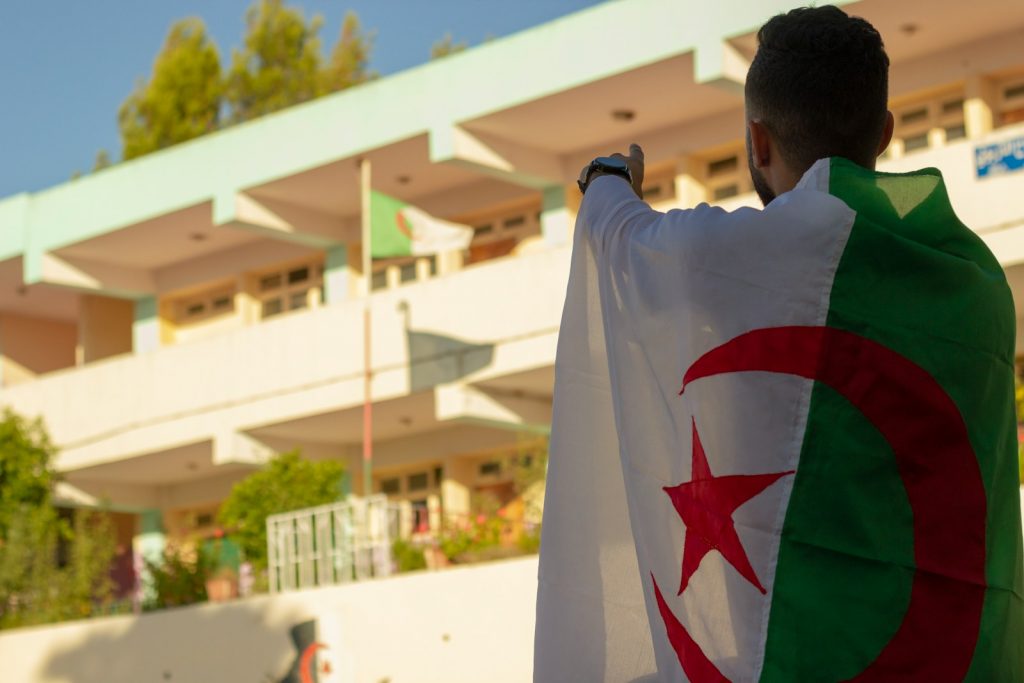
Conclusion
Algeria is a country that offers a captivating blend of natural beauty, historical significance, and a rich cultural heritage. From its breathtaking landscapes to its ancient archaeological sites, the country provides a fascinating experience for those seeking adventure, history, or a glimpse into North African culture. With its ongoing development efforts, Algeria is poised to showcase its potential as a thriving nation, welcoming visitors to explore its treasures and appreciate its unique contributions to the world.
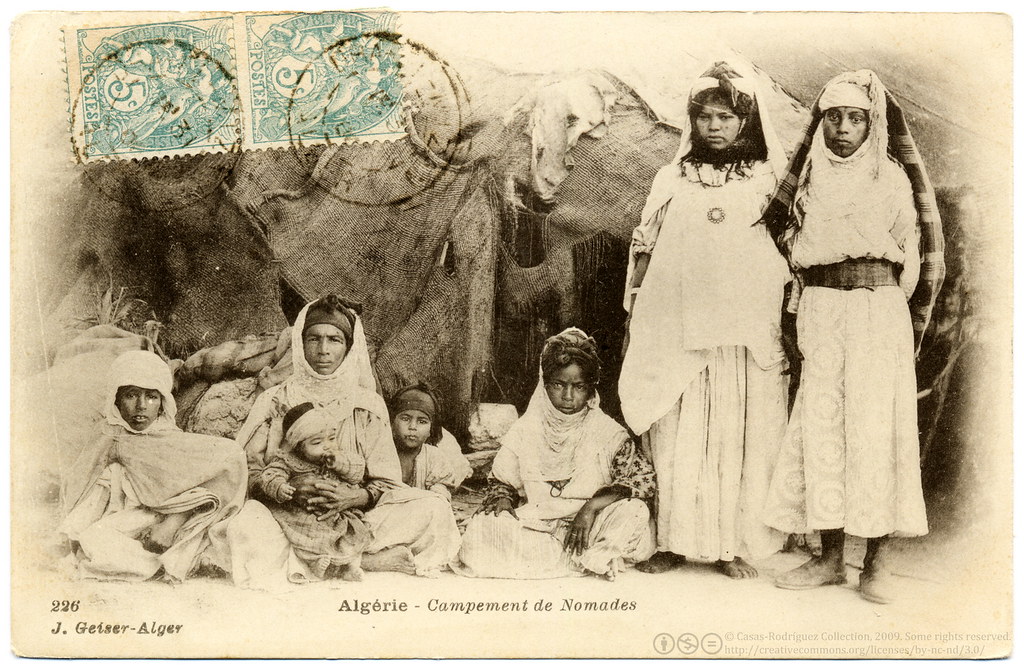
Frequently Asked Questions about Algeria
- Where is Algeria located?
Algeria is located in North Africa, bordered by Tunisia and Libya to the east, Niger and Mali to the south, Mauritania and Western Sahara to the southwest, Morocco to the west, and the Mediterranean Sea to the north.
- What is the capital of Algeria?
The capital of Algeria is Algiers. It is the largest city in the country and serves as its political, economic, and cultural center.
- What languages are spoken in Algeria?
The official language of Algeria is Arabic, specifically the Algerian dialect. However, French is widely used in business, education, and government sectors. Additionally, various Berber dialects are spoken by the indigenous Amazigh population.
- What is the climate like in Algeria?
Algeria has a diverse climate due to its large size and varied geography. The coastal regions have a Mediterranean climate with hot, dry summers and mild, wet winters. Inland areas experience a desert climate characterized by sweltering summers and cold winters. The mountainous regions have a more temperate climate with cooler temperatures.
- What are the popular tourist attractions in Algeria?
Algeria offers numerous attractions for tourists. Some popular destinations include:
- The Casbah of Algiers: A UNESCO World Heritage site, the Casbah is a historic neighborhood with narrow streets, traditional houses, and picturesque views of the Mediterranean Sea.
- Timgad: An ancient Roman city with well-preserved ruins, including a theater, arches, and temples.
- The Sahara Desert: A vast expanse of dunes offering a unique and unforgettable experience. Places like the Tassili n’Ajjer National Park and the dunes of Erg Chebbi are popular among visitors.
- The Ahaggar Mountains: A mountain range in the southern part of the country known for its stunning landscapes and rock formations.
- Is Algeria a safe country for tourists?
Algeria has made significant strides in improving security in recent years. The government has implemented measures to ensure the safety of tourists and has increased its security presence in popular tourist areas. However, it is always advisable to stay updated on the current situation and follow any travel advisories issued by your country’s authorities.
- What is Algerian cuisine like?
Algerian cuisine is a delightful fusion of flavors influenced by Berber, Arab, and French culinary traditions. Staple dishes include couscous, tajine (a slow-cooked stew), merguez sausage, and various pastries. Algerian cuisine often incorporates cumin, coriander, and saffron, producing aromatic and flavorful dishes.
- What is the currency of Algeria?
The currency of Algeria is the Algerian dinar (DZD). It is advisable to exchange money at authorized banks or exchange offices, as they offer more reliable rates.
- Do I need a visa to visit Algeria?
Visa requirements vary depending on your nationality. It is essential to check with your country’s Algerian embassy or consulate before traveling to determine the visa requirements for your specific situation.
- What are some traditional Algerian customs and etiquette?
Algerians are generally warm and hospitable people. Greeting others with a handshake and maintaining direct eye contact during conversations are customary. When visiting someone’s home, it is polite to bring a small gift. Algerians also place great importance on family and community values, and showing respect for elders is highly valued.
Please note that the information provided here is a general overview, and it is always recommended to consult official sources and conduct thorough research before planning a trip to Algeria.


